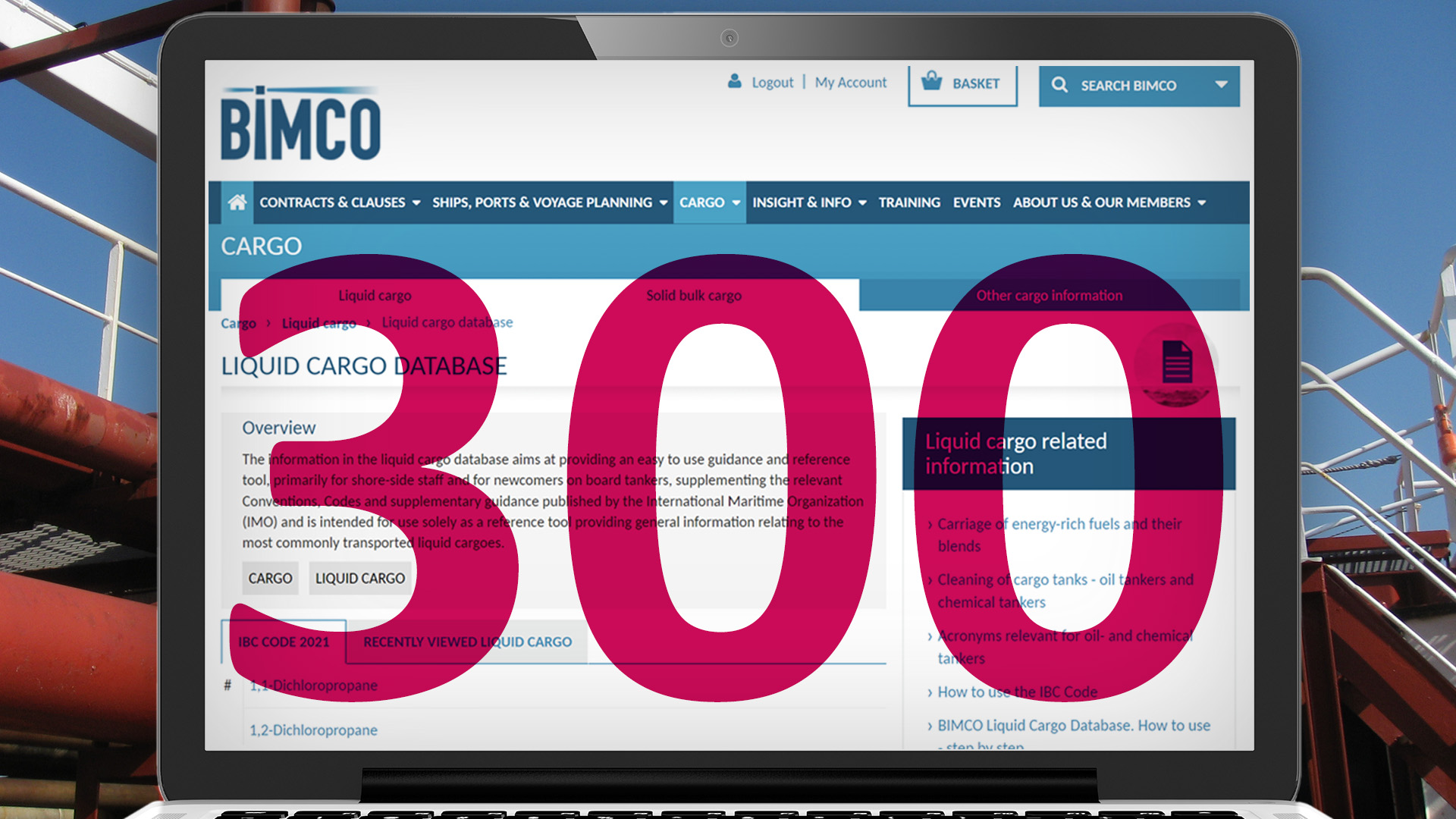
CONTACT BIMCO
Peter Lundahl Rasmussen
Head of Maritime Information
Copenhagen, Denmark
- +45 4436 6873
- marinfo@bimco.org

The BIMCO Liquid Cargo Database is kept updated and in line with The International Code for the Construction and Equipment of Ships Carrying Dangerous Chemicals in Bulk (IBC Code) and MARPOL Annex II Regulations for the Control of Pollution by Noxious Liquid Substances in Bulk.
The BIMCO Liquid Cargo Database currently contains information for some 310 different cargoes aiming at providing an easy-to-use guidance primarily for shore-side staff and for newcomers to the tanker industry and supplementing the relevant Conventions, Codes and supplementary guidance published by the International Maritime Organization (IMO).
The individual entries contain information about:
In all cases, the appropriate publications of the IMO, Flag and Port States requirements should be consulted for detailed and updated information eg:
The ultimate responsibility for safety of a ship and crew remains with the Master, who should therefore ensure that the practices adopted for any specific cargo and ship conform to the recommendations or regulations of the IMO, and that such practices provide adequate measures of safety and protection of the environment for the voyage.
Prior to loading, the Master must always obtain adequate information from the shipper as to the characteristics and properties of a cargo as well as consult appropriate publications of the IMO.
All entries in the BIMCO database are kept up to date to the latest version of the IBC Code (2021 Edition) and MARPOL Annex II.
The following guidance related to the BIMCO Liquid Cargo Database and the carriage of liquid cargoes is available here:
The BIMCO Liquid Cargo Database is intended for use solely as a reference providing general information for the most commonly transported liquid cargoes.
Please note that the database is only available to BIMCO members. If you are interested in becoming a member, see the categories and benefits and get in touch with our membership team.